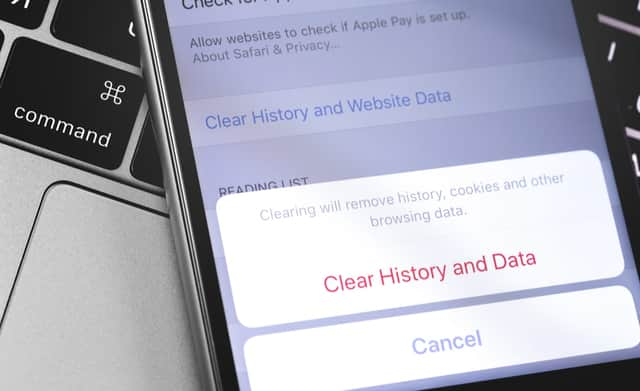Local council websites have been sharing your data with third party companies


Visitors to council websites are being bombarded by online adverts for high interest credit cards, disabled access sports cars, and private funeral care plans as a result of non-consensual online tracking.
A total of 400 local councils across the UK have shared online cookies to advertising companies without consent from site users, an investigation has found.
Advertisement
Hide AdAdvertisement
Hide AdPeople visiting council support sites for benefits, social services, mental health, and support services were permitted to be targeted by advertisers by the councils.
What are cookies?
Cookies are small text files that track people on the internet and are used by advertising companies to understand your browsing habits to tailor adverts for you.
You can delete cookies through your search engine, often by clearing your search history and clicking the 'clear cookies' box. Whenever you visit a website you are often asked, under GDPR law, to accept cookies.
But a recent investigation by the BBC and an anonymous search engine provider called Brave found that more than half of UK councils had third-party advertising cookies on their benefits pages - a total of 950 cookies.
Advertisement
Hide AdAdvertisement
Hide AdThe Information Commissioners Office (ICO), an independent body set up to uphold information rights, said the setting of non-essential cookies without consent would be illegal.
Johnny Ryan, chief policy officer at Brave, said, "Private companies embedded on council websites learn about you. This happens even on the most sensitive occasions, when you might be seeking help from your council.”
Which council areas were affected?
Enfield and Sheffield councils were the worst culprit, sharing data with 25 private companies.
By country, Northern Ireland is the worst with 91 per cent of local councils involved in this scheme, compared to 56 per cent in England, 55 per cent in Wales, and 46 per cent in Scotland.
Advertisement
Hide AdAdvertisement
Hide AdEliot Bendineli is a technologist at Privacy International - a UK NGO focussed on privacy advocacy. He said, “All of this really matters because these tools basically allow companies to have a good idea of who you are, where you live, what you’re interested in, what you’re doing this weekend, or if you have any mental health issues.”